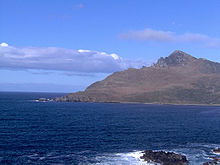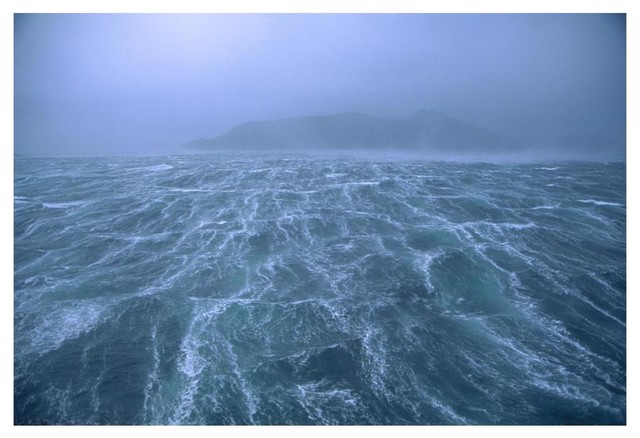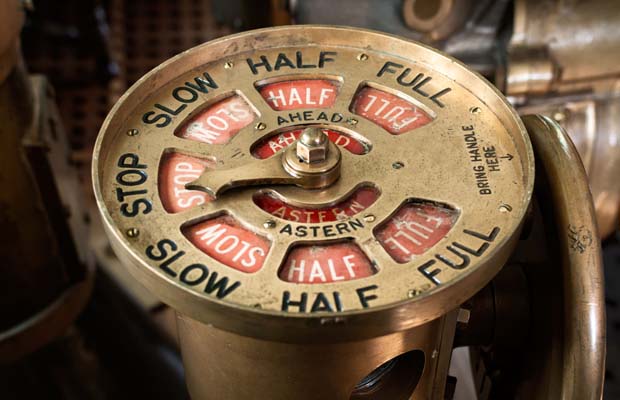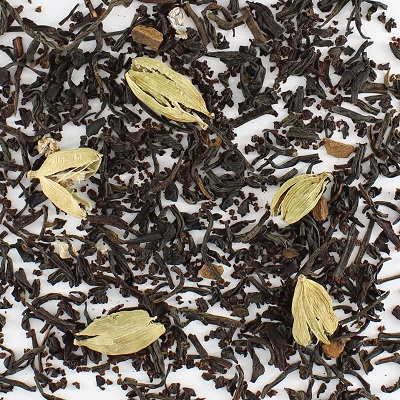
They were just a day out from Cape Horn, and they could feel the chill in the air as the winds picked up and the seas of the far south Atlantic began to churn. Admiral Grey had ventured out to the bow in his oilskins, which provided but scant protection against the windy cold.
He felt a tug at his elbow. It was the helmsman, Morrow. “Sir, best you come in, you could be thrown overboard!”
The Admiral turned toward the tall figure accosting him, wind whipping at both of their faces. “Why are you not at your post, helmsman?”
“First Mate O’Connor ordered me to come get you,” he shouted, trying to be heard over the tearing winds. “He has the helm.”
Admiral Grey was annoyed, but knew that the helmsman was right. The Admiral had just wanted a bit of solitude during one of his melancholy moments, for try as he might, and even though weeks had passed, he couldn’t shake the memory of his parting with Julianna. Swept away? Perhaps that would be best, to sleep in the sea … no. He wasn’t like that, couldn’t think that way.
“Very well, helmsman.”
The two of them made their way across the nearly flooded deck and back through the door onto the bridge. The First Mate gave the wheel back to Helmsman Morrow, and approached the Admiral. He opened his mouth to say something, but Admiral Grey preempted him.
“Status, Mr. O’Connor?”
“We’ll begin to run the Cape just after dark, sir. Best we hold off, I think, until daylight, and have a full day to traverse it.”
“Nay, Mr. O’Connor. Have you not run the Cape before?”
“No, sir. I mostly served the India routes.”
“Well, then, daylight or night, it hardly matters, as the weather is likely to be so heavy as to obscure everything. Whether we are in a black fog or a white fog, I think, will make little difference. This will be my third time around the Cape. It is familiar to me, and even more so to Mr. Morrow.”
O’Connor looked doubtful, but he nodded and replied, “As you say, sir.”
“Best we have a meal and rest,” said Admiral Grey. “There will be no time for rest, and no desire for food, when night comes.”
The Admiral saw to it that the ship was properly prepared, everything stored and battened down, all men at their stations and ready for whatever may come.
There were two ways to reach the Pacific from England. One way, by far the fastest, was to cross the Atlantic diagonally, heading south to the southern tip of South America, and rounding Cape Horn to enter the waters of the Pacific Ocean. The problem was that Cape Horn was forever stormy, with treacherous seas, high winds, dangerous currents, and torrential rains. Rounding the Cape was exceedingly dangerous.
The alternative was to sail down the coast of Africa to Cape of Good Hope, a gentle passage into the Indian Ocean. Rounding Good Hope was almost never a problem. The weather was usually good and the seas cooperative. But then the entirety of the Indian Ocean had to be crossed to reach the western seas of the Pacific. All in all, the time to reach Hawai`i would increase by many weeks. And on such an urgent mission, the Admiral didn’t have the luxury of time. So he took the fast, dangerous route, relying on his prior experience with rounding Cape Horn. He had done it several times before without incident, and thought to do it again.
It was a decision he would soon come to regret.
Just after sunset, in one of the lowest southern latitudes inhabited by man, the Admiral’s Ship, the HMS Sovereign, began its transit of Cape Horn.

The winds were above gale force, as they often were in this location, and the seas were wild and choppy. No one was out on deck any longer; water washed over the deck and receded, and anything not attached would have been inexorably swept away. On the bridge, spray lashed the windows constantly, and it was next to impossible to see. The Admiral would have to reckon as much by feel as anything else. But he knew the course, knew how to traverse the passage, and would do so if all went well and with the grace of G-d.
The ship rose as it meet waves head on, then plunged again rapidly. In the turbulent sea, some waves came from the sides, making the ship pitch and roll. All sails were furled and the steam engines groaned as they strained to power the screws. The Admiral knew that below-decks would soon become, if it wasn’t already, an inferno of sweat and vomit. But his crew was good. They would maintain their stations and do their duties.
“Steady ahead, Helmsman. Maintain course.”
“Aye aye, sir.” But Morrow privately asked himself how he was supposed to do that when he couldn’t see a thing and with the ship pitching and rolling so much it was hard to keep track of changes in direction.
Half an hour passed, the howling of the wind growing in intensity moment by moment, the motion of the ship becoming more and more pronounced and violent.
“First Mate, take the helm. Mr. Morrow looks exhausted.”
“But sir …” O’Connor began. “I haven’t the experience …”
“I am well, sir,” Morrow said, although he hardly looked it. “I know the Cape, sir.”
It was true. Morrow had made this crossing twice before with Admiral Grey.
“Very well then,” the Admiral replied. “How far to the Pacific?”
“I believe we are about halfway around,” Morrow said. “But sir, this is rather worse than usual. Shall I attempt to turn about and run for Good Hope?”
“No, Helmsman, we cannot afford to do that. Let us pray that the Sovereign is as sturdy a vessel as I believe her to be.”
The Admiral knew that there were only two choices. The south end of South America— Tierra del Fuego, the Land of Fire, offered little in the way of safe ports. No way to reach land and wait out the weather, and any attempt to go inland would likely pile the ship up against rocky reefs or shores. And besides, a good sailing day might be days or weeks away; weather here was rarely good. So they either continued on, or turned back and sailed toward the southern part of Africa and the Cape of Good Hope, causing enormous delay. Too, turning about would have its own risks; even a large vessel such as the Sovereign could overturn in such dangerous seas.
A violent wave caught the ship from the side, followed by a swell from the front. The ship lifted alarmingly and then thudded back down, its bow plunging into the water, submerging the bridge, before coming back out again into the clear.
The doors to the bridge were tight, but still, there was now water inside and the men were soaked. The Admiral hoped the below-deck pumps were being manned and that there wasn’t too much water inside. But there was little he could do now. The engines were still running; to have them give out at this point would leave them stranded and exposed.
“Helmsman, how do we stand?”
Morrow was anything but sure. “Perhaps an hour to go, Admiral. I can’t really say.”
Just then they were hit from the side by a very large wave. The ship tilted alarmingly to the side.
“We’re going to capsize!” the First Mate cried, hanging on to a post to avoid being thrown to the far wall. But the ship righted itself just in time.
“Too close for comfort,” said the Admiral. “Helmsman, recover direction as best you can.”
“Aye, aye, sir.” Morrow figured he would have to come about 30 degrees to port. The wave had been so large it might have thrown them off course that much. But he felt a strong current resisting his efforts to turn.
“Admiral, she doesn’t want to come about,” he said. He could barely get out the words. His face was tense, his jaw set, his shoulders tensed and his arms strained to the limit.
“Bit by bit, helmsman.”
Then, just when Morrow thought he was out of strength, the wheel spun sharply to port, almost causing him to be thrown to the deck. “The wheel’s turned, sir,” he said breathlessly. But then he realized— the ship had not begun to turn.
The Admiral noticed it too. “Why is the ship not responding, helmsman?” he asked.
Morrow, regaining his balance, grasped the wheel again, only to find it turned freely in his hands.
“Admiral, I believe we’ve lost the rudder.” He swung the wheel this way and that, desperately looking to regain control over the ship’s turning motion, but nothing happened, and he encountered no resistance as he spun the wheel.
“We’ve no control over the ship,” he said, turning to face the Admiral, not trying to hide the fear in his eyes.
Admiral Grey reacted quickly. “All ahead stop.”

The First Mate set the engine room telegraph, and within seconds they could feel the engines shudder to a halt.
“Go below decks, gentlemen. I will stay at the helm. We are now at the mercy of heaven.”
Morrow said, “Sir? If you please, the helm is my job ….”
“Obey my orders, Helmsman. You are relieved. The best you can now do is go below and lead prayers.”
Relucantly, O’Connor and Morrow left the bridge. But the Admiral knew that their chances were slim no matter how hard they all prayed.
In an isolated, secure room in a highly secret location, some centuries later, another group came together. Dressed in the robes and tunics of the day, they arrived one by one, gaining entrance by palm and retina scan administered by equipment programmed to terminate unauthorized intruders.

When everyone was in place— there were six of them, four men, two women— seated in contoured chairs arranged in a rough circle, cups of hot, spiced tea were passed around, and then the leader, the eldest of the men, began.
“We have located the Book,” he said. “It seems to have activated and our trackers detected it.”
“A major risk to the plan,” said the First Woman. “It has long been a worry. We must take swift action.”
Everyone nodded in agreement. “Indeed,” said First Man, “and it’s in an unexpected location. The signal was picked up in a place once known as ‘Calgary’ in what was the nation of Canada. Of course, we have more specific details, and the investigation continues. I’ll link you all to the source files.” First Man turned his head slightly and in a moment, so did everyone else. “There, you have the information now.”
“Are we sending a team?” Third Man asked.
“Not yet,” replied First Man. “We’ll send an agent— to monitor things. This could turn out to be a— shall we say, complex situation.”
“Which one of us?” Third Man asked.
First Man’s eyes roved around the group, examining each one in turn. “None of us will do. We need an experienced Assassin, someone not afraid to take extreme action in order to resolve the situation.”
“Kate,” Second Woman said. “You’ll send Kate.” Second Woman shuddered a little as she said the name.

“Yes,” First Man said. “I shall brief her personally and she shall be on her way before the day is over.”
To be continued next month.

We don’t know for sure what kind of tea the conspirators were drinking, but if you’re looking for a flavorful spiced tea, you might consider Rocky Mountain Chai from Tea Trader. Whole, crushed cardamom, cinnamon and clove blended with full bodied Ceylon and Assam tea yield a rich, spiced cup, traditionally served strong with hot milk and a dollop of honey. And you don’t even have to be a conspirator to enjoy it!
